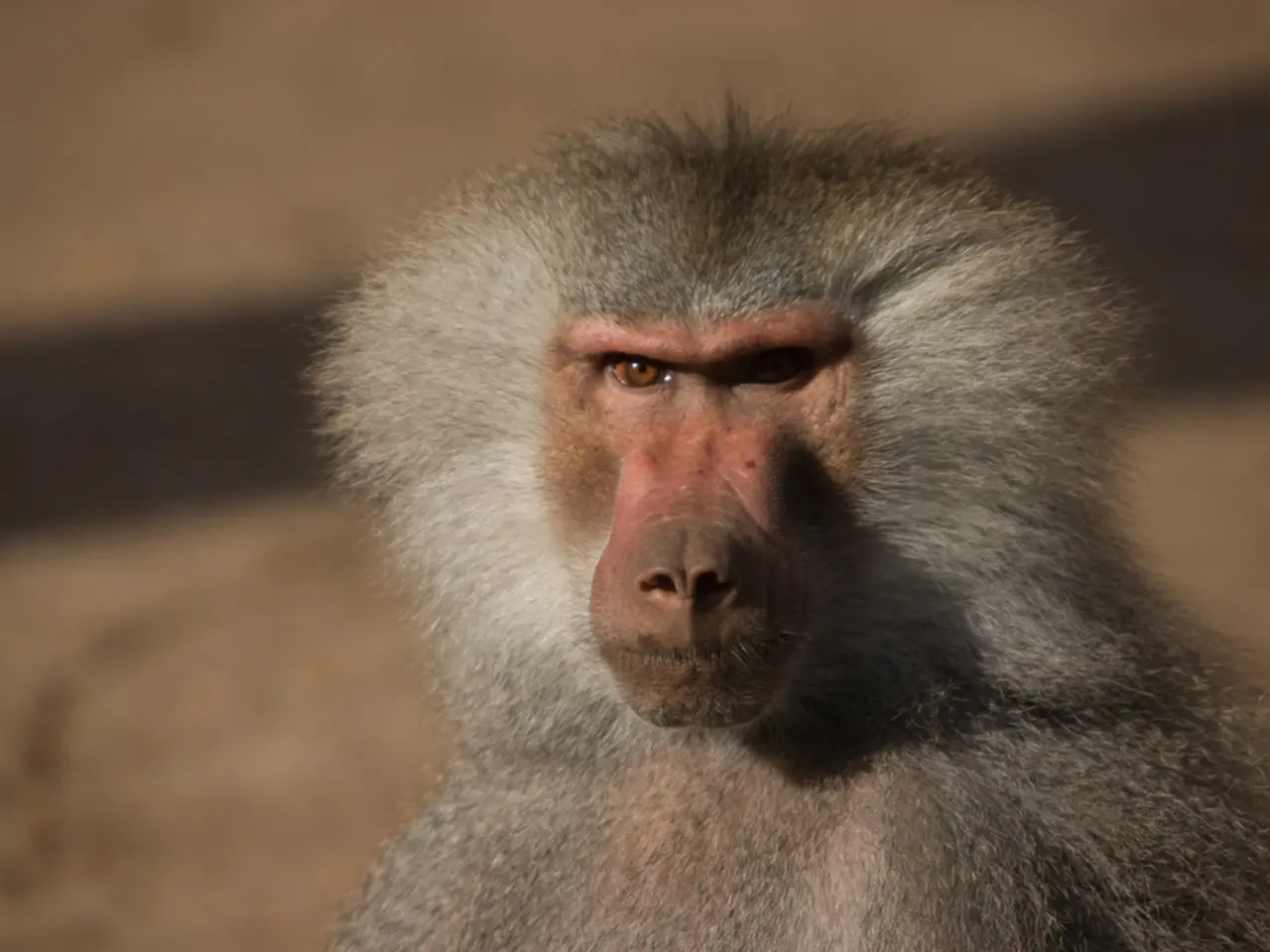Controversial Question: Justifying the Demise of Baboons in Nuremberg Zoo?
In the heart of Germany, the Nuremberg Zoo finds itself at the centre of a heated debate, as it plans to cull some of its Guinea baboons due to overpopulation and unfavourable social structures within the group. This decision, however, has met with strong opposition from animal welfare organizations.
The Nuremberg Zoo, home to around 280 Guinea baboons across ten European zoos as part of a European breeding program for endangered species, is governed by the European Union's animal welfare legislation. This legislation, currently undergoing modernization, sets minimum standards to protect the welfare of wild animals kept in zoos. While it covers transport, housing, and care, it also addresses humane killing methods if necessary.
Despite the regulations, the practice of culling surplus animals for population control is highly regulated and often seen as a last resort. The ethical and legal frameworks emphasize avoiding breeding excess animals to minimise the need for culling.
There is no blanket EU-wide prohibition on euthanizing surplus zoo animals, but such actions must comply with strict welfare standards ensuring humane treatment. National laws may impose additional restrictions, with some European countries limiting or forbidding the killing of zoo animals except in cases of severe health or welfare risks.
The Guinea baboons, scientifically known as Papio papio, would be subject to regulations under EU and possibly national laws protecting wild species kept in captivity. However, specific regulations for Guinea baboons in Europe are not explicitly outlined, and for precise national regulations, one would need to consult the relevant country's animal welfare and zoo management laws.
The planned culling of healthy baboons has raised concerns among animal rights and welfare organizations, who argue that these plans violate the Animal Welfare Act. PETA and Pro Wildlife have announced they will file a criminal complaint if the baboons are killed, and the Nuremberg Zoo is preparing for a potential trial.
Judith Benz-Schwarzburg, an animal ethicist, questions the argument of species conservation, as zoos do not typically release animals into the wild, and the animals bred there would not be suitable for that. The European breeding program for Guinea baboons is not accompanied by reintroduction programs, according to Laura Zodrow of Pro Wildlife.
The Nuremberg Zoo director, Dag Encke, has stated that expanding the enclosure would only result in repeated expansions and would only house baboons in the zoo. The zoo has already moved 16 baboons to other zoos since 2011, but no suitable options exist currently.
It's worth noting that many zoos breed extra feed animals that are intended as a meal for carnivores, and numerous zoo animals are killed and fed to other animals, according to the German Animal Welfare Federation. The method of humane killing for the Guinea baboons, if they are culled, is not specified in the article.
As the debate continues, concerns about setting a dangerous precedent if the practice of killing unwanted zoo animals becomes established remain. The Nuremberg Zoo's decision to cull its Guinea baboons, despite the controversy, underscores the complexities and ethical dilemmas faced in managing animal populations in zoos.
- The Nuremberg Zoo, a prominent establishment in the world of home-and-garden, houses various species, including the Guinea baboons, which are part of a European breeding program for endangered species.
- Alongside the Guinea baboons, pet welfare and education-and-self-development are also significant aspects at the Nuremberg Zoo, with visitors learning about the plight of endangered species and the challenges in their care and conservation.
- As political debates unfold, the general-news world is closely monitoring the Nuremberg Zoo's plans to cull some Guinea baboons due to overpopulation, with strong opposition from animal welfare organizations.
- In the realm of sports and competition, the Guinea baboons, scientifically known as Papio papio, are fighting for their lives as the Nuremberg Zoo faces potential legal challenges in following through with its controversial decision to cull them.




